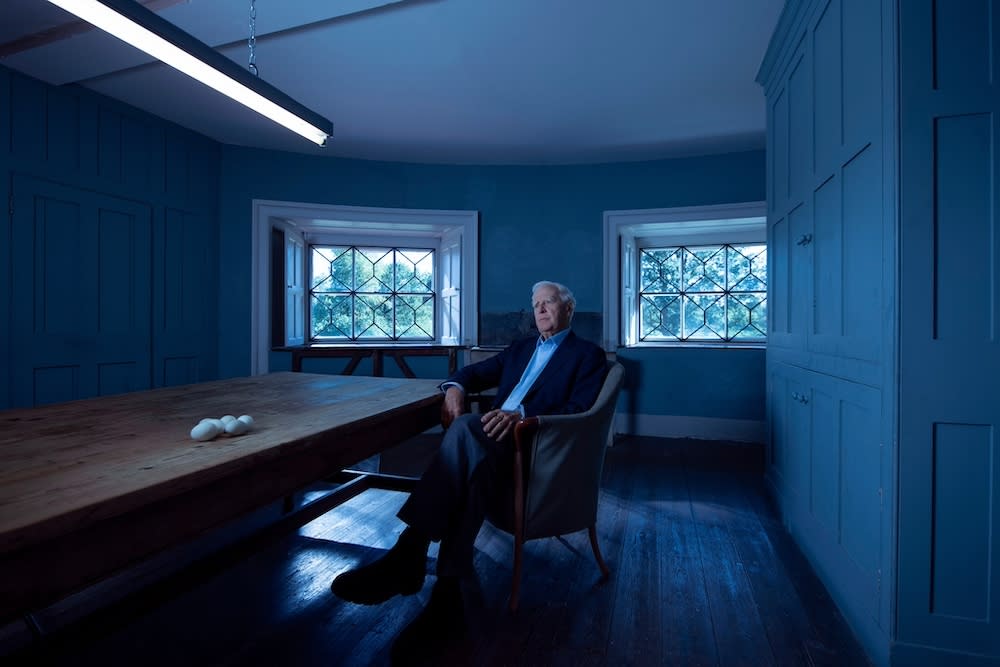‘The Pigeon Tunnel’: A cosy but revealing conversation with John Le Carré (VIDEO)

KUALA LUMPUR, Oct 20 — It’s an often-told joke that the Marvel Cinematic Universe is just the Daddy Issues franchise.
There is no denying though that the father-son dynamic is one often explored in fiction because it is something very real as the late David John Moore Cornwell would tell you — though the world knows him best by his pen name John Le Carré.
Cornwell was a member of Britain’s MI6 and wrote his spy novels that centred around Guy Smiley as an antidote of sorts to the James Bond franchise, which he disdained.
In the documentary The Pigeon Tunnel on Apple TV+, director Errol Morris (The Fog of War) speaks with Cornwell for what would end up being his last interview.
Going into the documentary I didn’t expect Cornwell to speak so much about his father. Oh, he would speak of the Cold War, the Berlin Wall and the betrayal of double agent Harold ‘Kim’ Philby.
Yet somehow, another anecdote about Cornwell’s con artist father would slip in as the documentary went on.
You must understand that The Pigeon Tunnel wasn’t made in a day. No, it was a tremendous undertaking where over 100 crew were present over a series of days as Morris spoke with the former spy, later master spy novelist.
Of beginnings and backgrounds
Show producer Dominic Crossley-Holland said that Apple was involved very early on in the making of the documentary, and underwrote what was likely a significant cost in getting such a large crew present during the taping of the interview.
I told him that the documentary had succeeded in making what is on the surface, if you only listened, not watched it, just a conversation between two men surprisingly riveting.
“In some ways what I think is eternal about this documentary, and why I think it is a masterpiece is because of the sheer conversation alone is the umbilical cord and arc of this film,” Crossley-Holland said in reply.
Both Cornwell and Morris had “extraordinary voices”, he said, and their conversing became what Crossley-Holland defined as the “spine” of the documentary.
With the addition of the archive sounds as well as Philip Glass and Paul Leonard Morgan creating an excellent yet understated score, all these combined together “lifted the film”, he said.
I was curious as to just how stage-managed the interviews were and asked Cornwell’s sons, Stephen and Simon Cornwell as to whether there had been prior agreement on what could or could not be asked.
They empathically replied that not only were there no ground rules set, there was “not even a discussion of ground rules”.
As producers they had too much respect for the show’s director and of course, their own father to even suggest that any kind of hard line would be set.
As his sons they found it particularly interesting to learn, as well, from the documentary about Cornwell’s troubled upbringing and how it influenced him to become “very present” in their lives.
Cornwell’s father was not just a charlatan but his son too learned from his example to lie and hide from debt collectors and there is also a rather interesting anecdote about a day at the races (I won’t spoil it here) that demonstrated just how much their personalities contrasted.
It perhaps also influenced Cornwell’s own career trajectory as it turned him into the “kind of type” that was sought out by intelligence services.
The kind of man who had no strong connections back home, what with a charlatan father and an absent mother who left the family when he was very young.
You could say that director and interviewer Errol Morris did a pretty good job keeping the conversation flowing, as it could have easily become banal or lopsided.
Morris even considered him a kindred spirit of sorts.
“A lot of the philosophical questions that obsess me also seem to obsess him. I worked as a private detective; of course, he worked as a spy.”
He also considered Cornwell as a man with “exceptional insight and a great deal of honesty about his role as a spy.”
What particularly struck him throughout the interview was his lack of cynicism compared to his own.
“David really did believe in good and evil,” he said.
There’s a lot more to glean from The Pigeon Tunnel so if you’re a fan of the John Le Carré books or just want to see into the mind of a very interesting man, who’d lived in interesting times, I’d say that this is both fascinating and perhaps the least dry documentary I’ve watched about anyone.
The Pigeon Tunnel drops on Apple TV+ from today and you can watch the trailer below.



